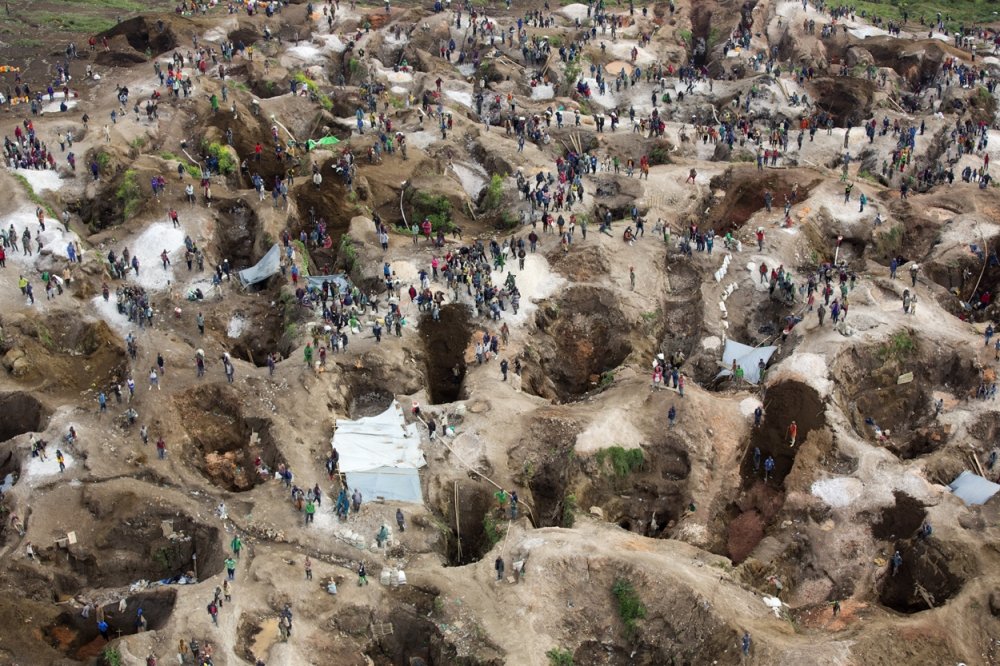The Wages of Green Energy Supply Chains

Saving the planet by creating new energy systems under the same system of unregulated capitalism that created the contemporary crisis is…..more than a little problematic. As we continue to have no regulation over supply chains and allow companies to engage in the most egregious behavior without any sense of responsibility or accountability, the result is child labor, worker death, massive environmental pollution, and everything that the world needs to reject if it is to be saved.
Effectively operating his own foreign policy apparatus, Mr. Yuma has hired a roster of well-connected lobbyists, wired an undisclosed $1.5 million to a former White House official, offered the United States purported intelligence about Russia and critical minerals and made a visit to Trump Tower in New York, according to interviews and confidential documents.
Mr. Yuma met with Donald Trump Jr. there in 2018, a session the mining executive described as a quick meet-and-greet. Despite such high-level access during the Trump administration, he was barred just two months later from entering the United States.
His grip on the mining industry has complicated Congo’s effort to attract new Western investors and secure its place in the clean energy revolution, which it is already helping to fuel with its vast wealth of minerals and metals like cobalt.
Batteries containing cobalt reduce overheating in electric cars and extend their range, but the metal has become known as “the blood diamond of batteries” because of its high price and the perilous conditions in Congo, the largest producer of cobalt in the world. As a result, carmakers concerned about consumer blowback are rapidly moving to find alternatives to the element in electric vehicles, and they are increasingly looking to other nations with smaller reserves as possible suppliers.
There is a chance that Congo’s role in the emerging economy could be diminished if it fails to confront human-rights issues in its mines. And even if Mr. Yuma works to resolve those problems, as he has pledged to do, it still may not be enough for new American investors who want to be assured the country has taken steps to curb a history of mining-industry corruption.
…
It’s a different story for the artisanal sector, where Mr. Yuma plans to focus the bulk of his stated reforms. Consisting of ordinary adults with no formal training, and sometimes even children, artisanal mining is mostly unregulated and often involves trespassers scavenging on land owned by the industrial mines. Along the main highway bisecting many of the mines, steady streams of diggers on motorbikes loaded down with bags of looted cobalt — each worth about $175 — dodge checkpoints by popping out of sunflower thickets.
Unable to find other jobs, thousands of parents send their children in search of cobalt. On a recent morning, a group of young boys were hunched over a road running through two industrial mines, collecting rocks that had dropped off large trucks.
The work for other children is more dangerous — in makeshift mines where some have died after climbing dozens of feet into the earth through narrow tunnels that are prone to collapse.
Kasulo, where Mr. Yuma is showcasing his plans, illustrates the gold-rush-like fervor that can trigger the dangerous mining practices. The mine, authorized by Gécamines, is nothing more than a series of crude gashes the size of city blocks that have been carved into the earth.
Once a thriving rural village, Kasulo became a mining strip after a resident uncovered chunks of cobalt underneath a home. The discovery set off a frenzy, with hundreds of people digging up their yards.
Today, a mango tree and a few purple bougainvillea bushes, leftovers of residents’ gardens, are the only remnants of village life. Orange tarps tied down with frayed ropes block rainwater from flooding the hand-dug shafts where workers lower themselves and chip at the rock to extract chunks of cobalt.
Georges Punga is a regular at the mine. Now 41, Mr. Punga said he started working in diamond mines when he was 11. Ever since, he has traveled the country searching Congo’s unrivaled storehouse for treasures underfoot: first gold, then copper, and, for the past three years, cobalt.
Obviously, the problem is just greater than American corporations. There are corrupt figures in Congo, there is the Chinese who just don’t care, etc. We can’t change that. What we can change through the massive economic and political power of the United States is demanding regulation on the supply chains that ensure that this sort of thing doesn’t happen if you want to sell to the U.S. We already do this all the time, but only in extreme circumstances, such as Chinese slave labor. So we could pass bills forcing American green energy corporations to get their supplies in an ethical manner and put the onus on them to make sure they do so. They already regulate for quality and cost. They can regulate here too. It doesn’t make much to improve conditions. It takes one major nation caring. That will only happen if we prioritize it, as I have recommended repeatedly.


